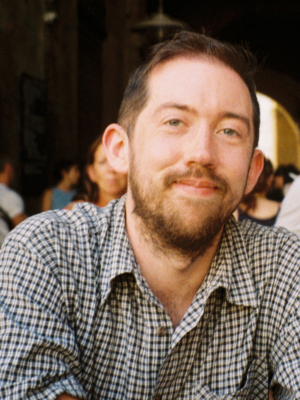The Passivevoicefreeword
Manymuch people were lostmissedperished during the most recent
fightquarrelclashes around and on the side inside of the hospital.
Collateral damageharm is expected; no biasedpartialunrequited damageharm
was confirmedprovensatisfied on any particulardefinite side at all, according to
unbiasedunbalanced indifferentunspecified observerswatchersspectators.
Bodies were buriedputthrown as respectfully as possible (it wasn’t possible).
They, and the names written by shakyuneasy hands on their shrouds are
seen. They are showndisplayedexhibited, on variousdisparate screens. They
are not read.
Missiles are dischargedreleased with wordsverbs carvedgraven on the metal.
They are the only things which are dischargedreleasedsetfree.
An Saorbhriathar
Cailleadh mórán daoine
i ndiaidh na dtroideanna is déanaí
timpeall agus taobh istigh den ospidéal.
Táthar ag súil le damáiste comhthaobhach;
níor deimhníodh aon damáiste leatromach ar leith
ar thaobh áirithe ar bith, de réir
breathnóirí neamhchlaonta neamhshonraithe.
Caitheadh coirp chomh measúil agus
is féidir (níorbh fhéidir). Feictear iad,
agus na hainmneacha atá scríofa
de lámh chorrach ar a dtaiséadaí.
Taispeántar iad, ar scáileáin éagsúla.
Ní léitear iad.
Scaoiltear diúracán agus briathra
greanta ar an miotal.
Is iadsan na rudaí amháin
a scaoiltear saor.
Translation Commentary
For this self-translation, I took inspiration from Rody Gorman’s technique of intertonguing, whereby multiple meanings of words in the source language are imbricated, and rendered as a surreal kind of gloss/compound word in the translation. This makes the English version quite a departure from the original. It manipulates the poem and its form so extremely that, at first glance, it seems more like a warped contortion than a translation: the new text manipulated almost to the point of violence. However, I feel this evokes the linguistic violence the poem itself describes, whereby the suffering of Palestinians is hidden behind evasive double meanings, as well as highly specific (and cowardly, at best) word choices. This style of translation does have the benefit of preserving certain ambiguities of the Irish; for example, the play on the word ‘scaoil’ and how it can mean ‘released’, ‘discharged’, or indeed ‘freed’ with the addition of the word ‘saor’. But the main effect is one of obfuscation. Though we have an abundance of meanings, they pile up to the point of absurdity. Words become meaningless, as they do with certain sections of the media, even when faced with clear evidence of a documented occupation and genocide. In this way, the technique of intertonguing feels particularly relevant and potent.
Born and raised in Belfast, John Tinneny is a writer and translator working between French, Irish, and English. His writings and translations have appeared in From Glasgow To Saturn, Cardiff Review, Channel, Comhar, and he also won a Stephen Spender Prize for Poetry Translation in 2016.






